Forced rhubarb harvesting begins in October at De Rond Agro in the Netherlands. The open-field rhubarb summer season is over, and the first greenhouse rhubarb has already been harvested. Thus, the company supplies rhubarb almost year-round through much of Europe. "We start harvesting the forced rhubarb when, say, English supermarkets want supply, so we can fit right into their programs," begins Rob de Rond.
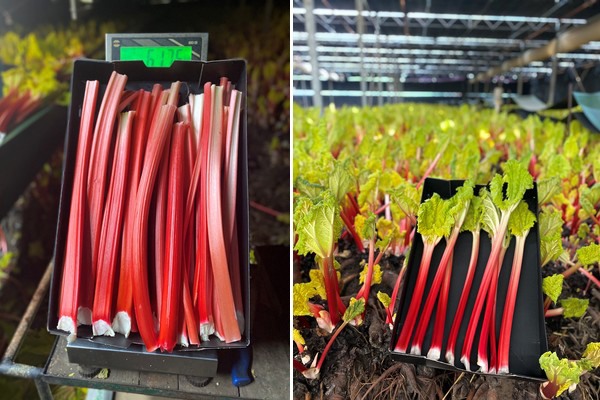
The family business also grows cauliflower, pak choi, and open-field radishes on some 90 hectares. It follows a tight cultivation schedule to offer rhubarb for eleven months a year. "In the summer, we grow rhubarb outdoors, but the rest of the year, we focus on forced greenhouse rhubarb. We use plants that first grow outside for two years; we don't harvest from those."
"We then grub them in the fall and refrigerate them. They need that cold period before they go into the greenhouse. There, they keep growing, in the dark, similar to chicory, until late March. After that point, we use heated portable tunnels. It's a slightly different method, but it's still the same rhubarb to consumers," Rob explains.
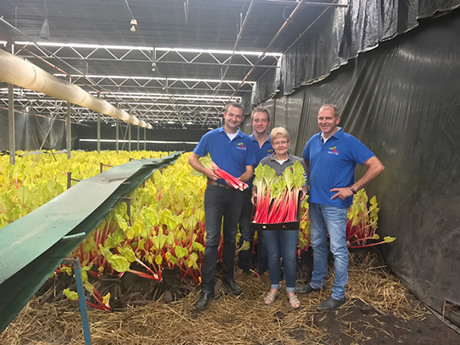
Summer drought seems to have damaged rhubarb
Europe had a hot, dry summer, which causes some concern about the upcoming crop's quality. "It was hard to keep them growing in those conditions. We'll have to wait to see if that's noticeable in the winter; it probably will be. In the summer, the plants must gather energy, which they then use in the greenhouse in the winter. When they struggle outside, that continues in the winter season. We're not sure, but we fear that rhubarb will have a tough time of it."
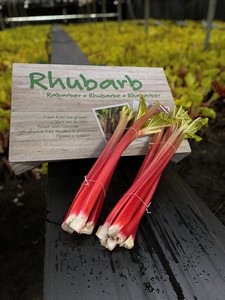 Energy costs are another concern for this Dutch grower. "When we need heating, we use propane gas. That's not an issue at all at present; it's still well-priced compared to natural gas," says Rob.
Energy costs are another concern for this Dutch grower. "When we need heating, we use propane gas. That's not an issue at all at present; it's still well-priced compared to natural gas," says Rob.
"Its price even dropped since the spring. Naturally, you have to wonder how long that will remain the case. The price fluctuations make it impossible to look far ahead."
Different clients at different times
Rhubarb may be quite a niche product, but at De Rond, they cannot complain, states Rob. "Last season wasn't as easy. During the pandemic, the entire outdoor vegetable sector prospered because there was a shortage of everything. The next spring, however, there was a surplus. Especially in the summer, many countries are self-sufficient, so don't eagerly await Dutch rhubarb."
"And supply is currently fairly in line with demand. We harvest per demand, and every three to four month period has its own customers. Right now, there's demand from England, Canada, the United States, and a bit of the Middle East. In the spring, we sell closer and closer to home via our partners," says De Rond.
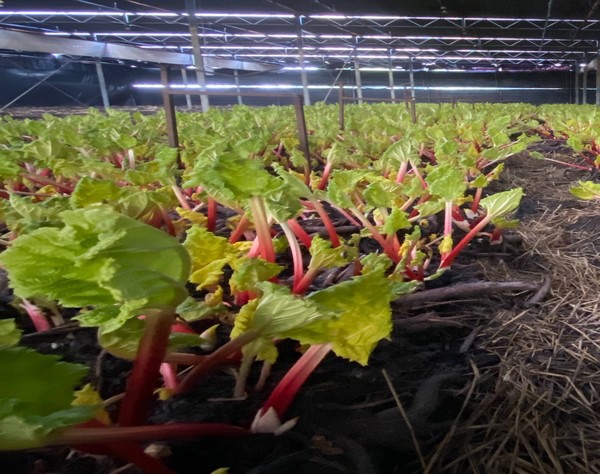
Delayed cauliflower season
He thinks the cauliflower season will last a little longer. "It usually continues until November, but this season we expect to cut cauliflower until Christmas. Because of the warm August nights, we're cutting practically nothing right now, so that's somewhat delayed. The season's first two months were difficult; there was plenty of supply, and prices weren't great. The second half picked up wonderfully, and last week, prices were genuinely fantastic."
The company also packages all its vegetables in-house. "We try to prepare the product as far as possible for our buyers. Here we, of course, consider the plastic debate. For instance, per client request, we're increasingly only using two rubber bands and a label to bundle the rhubarb. That uses much less plastic." However, Rob does not see a complete switch to paper happening any time soon.
"We're obviously sympathetic to this, and for rhubarb, it would be quite possible. It's just that, since every customer purchases over several months, we can't switch to paper for one and then back to plastic for another. If everyone says they want paper, we could do that. Besides, there are more and more good plastic alternatives, which can compete with paper, sustainability-wise," he concludes.
For more information: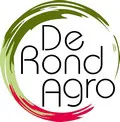 Rob de Rond
Rob de Rond
De Rond Agro
127 Gors
4741 TC, Hoeven, NL
Tel: +31 (0) 165 312 314
Email: info@derondagro.nl
Website: www.derondagro.nl
